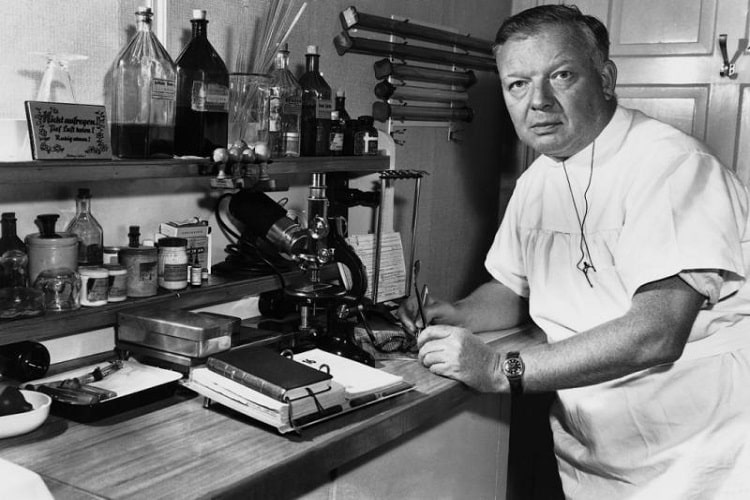Werner Forssmann (29 August 1904 – 1 June 1979) was a German researcher and physician. In 1956, Forssmann was jointly awarded the Nobel Prize in Physiology or Medicine.
Life and Career
Werner Forssmann was born on 29 August 1904, in Berlin, Germany. From a young age, he exhibited a strong interest in medicine and science. He pursued his medical studies at the Friedrich Wilhelm University (now known as the Humboldt University of Berlin), where he earned his medical degree in 1929.
Forssmann’s pioneering spirit led him to make one of the most significant contributions to the field of medicine. In 1929, while still a young assistant physician at the Eberswalde Surgical Clinic, he decided to perform a daring self-experiment. With little more than a local anesthetic and a borrowed cystoscope, Forssmann inserted a catheter into his own arm vein and successfully threaded it into his heart. This groundbreaking procedure marked the first documented cardiac catheterization.
However, his innovative approach was met with skepticism from the medical community at the time, and he faced professional consequences, including losing his position. Nevertheless, his work laid the foundation for modern cardiology and paved the way for diagnosing and treating various heart conditions.
Werner Forssmann passed away on 1 June 1979, in Schopfheim, Germany.
Award and Legacy
In 1956, Forssmann was jointly awarded the Nobel Prize in Physiology or Medicine alongside André Cournand and Dickinson Richards for their collective work on heart catheterization and its clinical applications.
Forssmann’s legacy lives on in the field of cardiology. His courage, determination, and innovative thinking have revolutionized the way heart conditions are diagnosed and treated. Cardiac catheterization has become a fundamental procedure, saving countless lives and improving the understanding of heart diseases.

